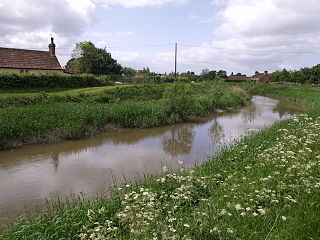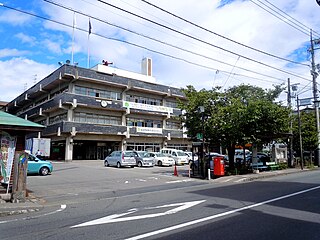
Mandarin is a group of related Sinitic languages spoken across most of northern and southwestern China. The group includes the Beijing dialect, the basis of Standard Chinese or Standard Mandarin. Because Mandarin originated in North China and most Mandarin dialects are found in the north, the group is sometimes referred to as the Northern dialects. Many local Mandarin varieties are not mutually intelligible. Nevertheless, Mandarin is often placed first in lists of languages by number of native speakers.

Hanyu Pinyin, often abbreviated to pinyin, is the official romanization system for Standard Chinese in mainland China and to some extent in Taiwan. It is often used to teach Standard Mandarin Chinese, which is normally written using Chinese characters. The system includes four diacritics denoting tones. Pinyin without tone marks is used to spell Chinese names and words in languages written with the Latin alphabet and also in certain computer input methods to enter Chinese characters.

Punjabi is an Indo-Aryan language with more than 125 million native speakers in the Indian subcontinent and around the world. It is the native language of the Punjabi people, an ethnolinguistic group of the cultural region of Punjab, which encompasses northwest India and eastern Pakistan.

Vietnamese is an Austroasiatic language that originated in Vietnam, where it is the national and official language. Spoken natively by an estimated 76 million people, it is the native language of the Vietnamese (Kinh) people, as well as a first or second language for the many ethnic minorities of Vietnam. As a result of Vietnamese emigration and cultural influence, Vietnamese speakers are found throughout the world, notably in East and Southeast Asia, North America, Australia and Western Europe. Vietnamese has also been officially recognized as a minority language in the Czech Republic.

Lingala (Ngala) is a Bantu language spoken throughout the northwestern part of the Democratic Republic of the Congo and a large part of the Republic of the Congo. It is spoken to a lesser degree in Angola and the Central African Republic. There are over 70 million lingalophones.

Yue or Yueh is a group of similar Sinitic languages spoken in southern China, particularly the provinces of Guangdong and Guangxi, which are collectively known as Liangguang.

The River Tone is a river in the English county of Somerset. The river is about 33 kilometres (21 mi) long. Its source is at Beverton Pond near Huish Champflower in the Brendon Hills, and is dammed at Clatworthy Reservoir. The reservoir outfall continues through Taunton and Curry and Hay Moors, which are designated as a Site of Special Scientific Interest. Finally, it flows into the River Parrett at Burrowbridge.

Numata is a city located in Gunma Prefecture, Japan. As of February 2015, the city had an estimated population of 48,840, and a population density of 110 persons per km². Its total area is 443.46 km², making it the largest city in terms of area within Gunma Prefecture.

Tone is a town in Ibaraki Prefecture, Japan. As of September 2015, the town had an estimated population of 16,547, and a population density 665 persons per km². The total area is 24.9 km².

The Tone River is a river in the Kantō region of Japan. It is 322 kilometers (200 mi) in length and has a drainage area of 16,840 square kilometers (6,500 sq mi). It is nicknamed Bandō Tarō ; Bandō is an obsolete alias of the Kantō Region, and Tarō is a popular given name for an oldest son. It is regarded as one of the "Three Greatest Rivers" of Japan, the others being the Yoshino in Shikoku and the Chikugo in Kyūshū.
A floating tone is a morpheme or element of a morpheme that contains neither consonants nor vowels, but only tone. It cannot be pronounced by itself but affects the tones of neighboring morphemes.

The Edo River is a river in the Kantō region of Japan. It splits from the Tone River at the northernmost tip of Noda City in the Sekiyado district, crosses through Nagareyama and Matsudo, and empties into Tokyo Bay at Ichikawa, Chiba Prefecture. The Edo forms the borders between Tokyo, Chiba, and Saitama prefectures. The Edo River is 59.5 kilometres (37.0 mi) long.
Izi is an Igbo language spoken in Ebonyi state in Nigeria. It forms a dialect cluster with closely related Ikwo, Ezza, and Mgbo.
The Warren River is a river in the South West region of Western Australia with a catchment encompassing the towns of Manjimup and Pemberton. The river was named by Governor James Stirling, probably after Admiral Sir John Borlase Warren under whom Stirling served whilst in action in North America in 1813.
The Tone River is a river in the South West of Western Australia.
Tuyuca is an Eastern Tucanoan language. Tuyuca is spoken by the Tuyuca, an indigenous ethnic group of some 500-1000 people, who inhabit the watershed of the Papuri River, the Inambú River, and the Tiquié River, in Vaupés Department, Colombia, and Amazonas State, Brazil.
Zigula is a Bantu language of Tanzania and of Somalia, where it is known as Mushunguli (Mushungulu). It is best known for the Mushunguli dialect.
Eton, or Ìtón, is a Bantu language spoken by the Eton people of Cameroon.
Nzadi is a Bantu language spoken in the Democratic Republic of the Congo, "from Kwamuntu to Ilebo along the north side of the Kasai River in Bandundu Province." The number of speakers of Nzadi is not known, but is estimated to be in the thousands. The Nzadi language has three dialects, Ngiemba, Lensibun, and Ndzé Ntaa.










